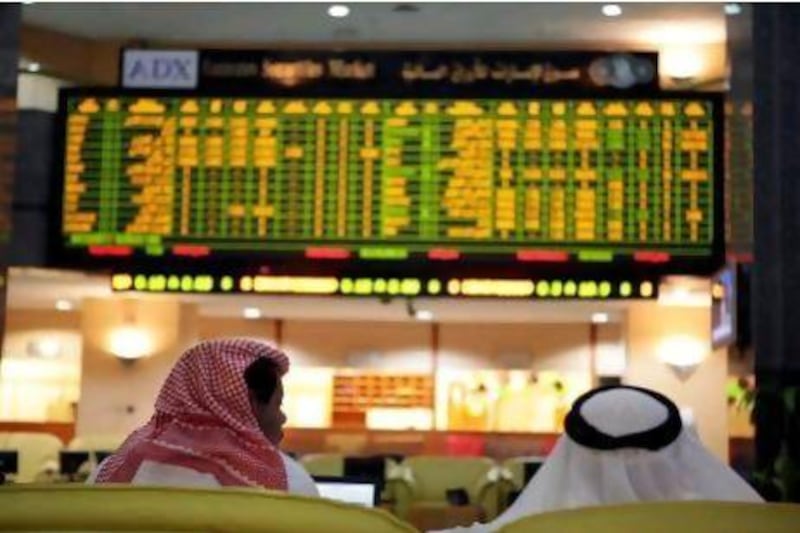Abu Dhabi stocks tumbled to a two-year low after UAE markets failed to win a key index upgrade that would have raised the international profile of locally listed companies.
Dubai's stock index also came within a whisker of its lowest intraday level since 2004 after the index compiler MSCI decided not to upgrade bourses in the UAE and Qatar to "emerging-market" status.
MSCI, which provides benchmark stock indexes used by funds managing about US$3 trillion (Dh11.02tn) globally, declined for the second time this year to upgrade the two countries' market designation.
Both are currently classed as "frontier markets", limiting the number of funds that can invest in either. MSCI's decision was "disappointing news" for the two countries, said Georges Elhedery, the head of global markets at HSBC Middle East.
"This continuing status means that international emerging-markets funds that track the MSCI Emerging Markets Index still can't access these two key markets," he said.
The Abu Dhabi Securities Exchange General Index lost 1.2 per cent to close at 2,413.24, its lowest level since March 2009.
The Dubai Financial Market General Index fell 1.2 per cent to 1,367.49, with the intraday decline at one point coming within 10 points of the lowest level reached all year. The index rallied later in the day.
Qatar's QE Index held up better, dipping only 0.1 per cent to 8,752.87.
MSCI said the UAE had failed to make the grade because of flaws in the delivery-versus-payment system, also known as DvP, which was introduced in June. Institutional investors had raised concerns - in relation to failed trades - about the possibility of forced sales of assets without the consent of owners.
Qatar stumbled because of rules limiting investment in some companies to Qatari nationals. The ownership rules were not changed after the review in June.
However, the index provider held out hope that the UAE would have more success at its next review, expected in June, saying that draft regulations for securities lending and borrowing may provide a solution.
The Securities and Commodities Authority began a consultation on the draft rules last month.
Implementing and testing new market rules will take time, but the process could potentially be completed in time for the review in June, said Remy Briand, the managing director and global head of index research at MSCI.
"It's totally in the hands of the various market participants and the regulators at this stage," he said.
Exchange officials were sanguine in light of MSCI's decision.
The review showed that the UAE's exchanges were on the right track, said Jeff Singer, the chief executive of Nasdaq Dubai.
"As MSCI has acknowledged, the UAE has made progress in improving its capital markets infrastructure," he said. "These achievements will be recognised by industry organisations in different ways and at different times. More important is the UAE's continuing focus on giving investors the framework they are looking for to participate in the markets with confidence."
The Qatar Exchange said MSCI's decision was "understandable"because the country had not changed its limits on foreign ownership since the review in June.
"The next review is in six months, and both markets have a clear view on what they need to address if they are going to enter the index," Mr Elhedery said.
Amid a prolonged slump during which a number of brokerages have closed, the value of trading on the Dubai Financial Market last month fell to 2.8 per cent of the peak recorded in November 2007. Mr Briand said the slump in liquidity would be examined at MSCI's next review.
In the hours preceding MSCI's announcement that it was withholding an upgrade, a sense of gloom was palpable among exchange officials and investors, who said the potential benefits of inclusion would be limited by the turbulence on global equity markets.
MSCI has declined to upgrade the UAE four times since 2009.






